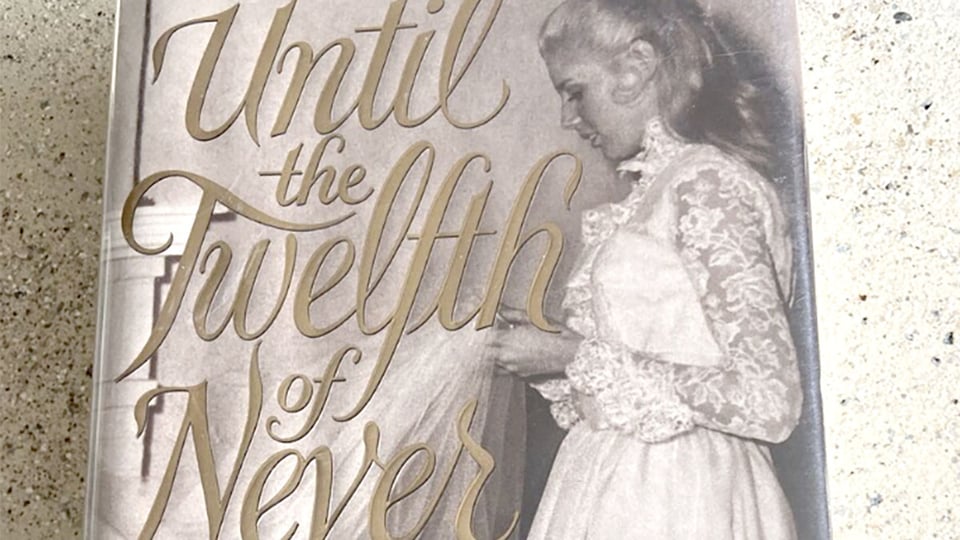Looking back at Until The Twelfth Of Never
the true crime that's worth your time
[Susan Howard’s complete review is here; paid subscribers can read the whole thing in their inboxes!]
Over the course of the summer, we’ll be doing a look back at the 1994 Edgar Award nominees for Best Fact Crime. These titles, published in 1993, include a classic chronicling one of true crime’s most infamous divorces and its aftermath, a sweeping Texas murder saga, a psychological study of a serial killer and the communities he targeted, and two child kidnapping cases (one extremely well known, the other less so). Are any of these titles worth a read 31 years on?

Our next 1994 Edgar nominee is the winner: Until the Twelfth of Never: The Deadly Divorce of Dan & Betty Broderick, by Bella Stumbo.
The crime
In the pre-dawn hours of November 5, 1989, Betty Broderick entered the San Diego home of her ex-husband Dan, stepped into the bedroom he shared with his new wife (and former mistress) Linda, and shot both of them to death.
The murder followed protracted and rancorous divorce proceedings between two people who could never take responsibility for their own failings as spouses and parents. The Broderick saga was rife with tawdry episodes that were on full display as Betty faced murder charges and became a cause célèbre. After a mistrial, Betty was re-tried and found guilty of two counts of second degree murder in 1991.
The story
A combination of factors put Until the Twelfth of Never back in the public consciousness a few years ago. Long out of print, it became available in digital formats, and got a boost from taste maker and crime writer Laura Lippman. In addition, it was the source material for the excellent second season of Dirty John starring Amanda Peet and Christian Slater.

This was my second reading of Until the Twelfth, and I was again struck by how this book transcends the genre boundaries of true crime to become much more: a chronicle of self-identity and the transactional nature of marriage.
Stumbo makes clear early on that this story goes deeper than the garish headlines at the time implied – a tale of a husband dumping his wife for a younger woman, and the woman scorned getting revenge. From Betty’s point of view, Dan (a successful and well-connected attorney) used the legal system to terrify, batter, and abuse her and her children. Stripped of the only identity she’d ever strived for – that of a wife and mother – and feeling ostracized, helpless, and full of self-hatred, Betty could only operate on a frequency of blinding rage.
It’s clear how little these two – married for sixteen years and parents to four children – actually understood each other. As Dan became more successful in his legal career and their wealth grew, both partners felt it was the culmination of years of hard work and struggle. But they were never really in a true partnership. While Betty clung to the antiquated bargain that her contributions to child-rearing and housework would let her lay claim to at least half of the fruits of Dan’s success, Dan was following a different rulebook.

Understanding how much power he had in the relationship, Dan kept Betty in a state of limbo for years – flaunting his affair with Linda, but all the while denying it and accusing Betty of being paranoid, likely an effort to get Betty to initiate the divorce. He never expected Betty to resist as hard as she did.
Stumbo doesn’t attempt to explain away Betty’s crimes as the result of years of emotional abuse – but she does pull all the strands together to offer keen insights into the impairments that got Betty to the morning of November 5, 1989. Her stubbornness, her inability to see the possibility of a life as something other than the wife of Dan Broderick, and her fatally wounded sense of self set this tragedy in motion.
The only thing that feels incomplete to today's reader about Until the Twelfth is a perspective on Betty’s mental-health condition. Her attorney did not argue diminished capacity at either of Betty’s trials, but absorbing so much puzzling and disruptive behavior for hundreds of pages leads the reader to draw their own conclusions (my vote is Borderline Personality Disorder). But that doesn't deter me from strongly recommending this gripping and fascinating true-crime classic.
Add a comment: